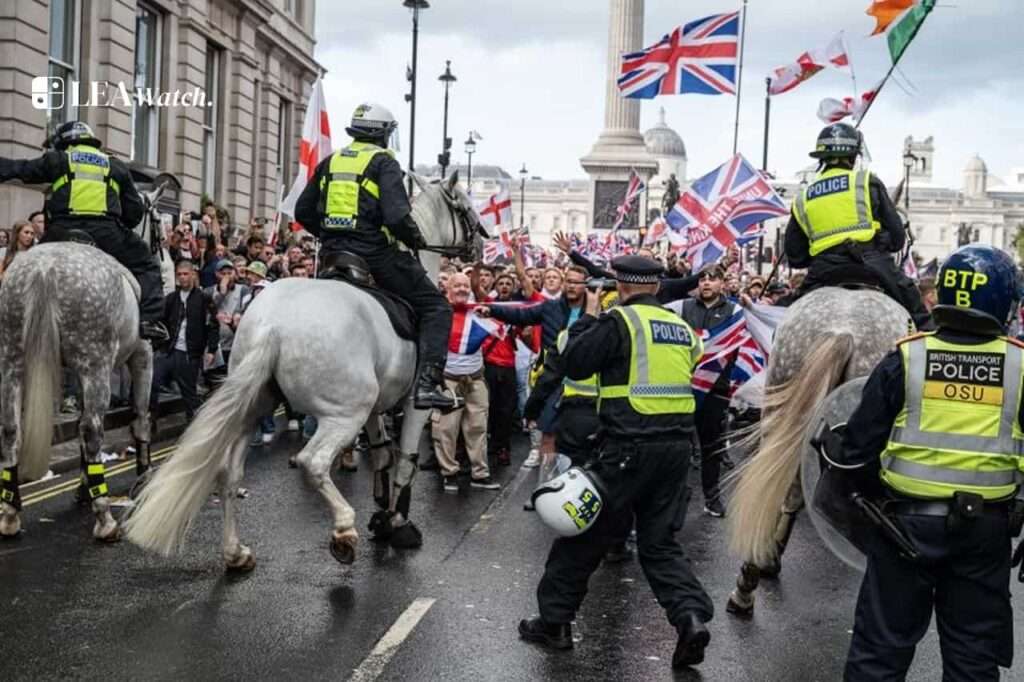Britain’s streets have become a mirror of its political fractures, with mass protests laying bare anxieties over migration, identity, and state authority. On September 13, central London saw more than 100,000 people march under the banner Unite the Kingdom, led by far-right activist Tommy Robinson. Ostensibly framed around national pride and opposition to immigration, the rally quickly revealed its disruptive undercurrents. Protesters broke from the authorised route, clashing with police, leaving 26 officers injured and nearly 30 demonstrators arrested. The images of Union Jacks and chants of “take back control” evoked an uneasy blend of nationalism and populist anger.
Prime Minister Keir Starmer, while affirming the right to peaceful protest, warned against violence and intimidation, reflecting the state’s struggle to separate free expression from public disorder. His stance comes as Britain grapples with a wider crackdown: nearly 900 pro-Palestinian protesters were arrested earlier this month, many under the Terrorism Act, after demonstrations against the ban on Palestine Action. Critics say such measures risk curbing legitimate dissent, signalling a hardening state posture.
International voices have weighed in too. Elon Musk, commenting on Britain’s trajectory, argued that criminalising protest “erodes democracy faster than immigration ever could.” His remark captures the paradox confronting the UK: a nation that celebrates free speech, yet increasingly tests its limits.

